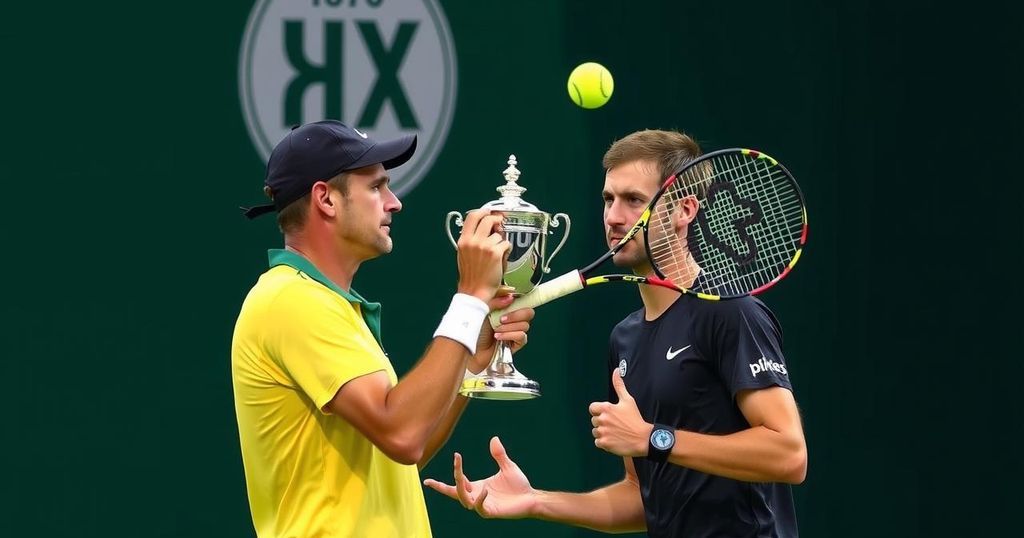Team USA Experiences Narrow Finishes at Paris Games Amid Performance Concerns
In recent athletic events at the Paris Games, Team USA faced a series of narrow finishes that have raised discussions regarding performance amidst intense competition. The allegations regarding the swimming pool conditions have overshadowed the remarkable achievements of the athletes, with several races being determined by fractions of a second. These instances exemplify the years of dedicated training and effort that culminate in near-misses, leaving athletes just shy of their aspirations for gold medals.
Despite topping the overall medal count and securing a significant number of gold medals, including notable world-record achievements by Bobby Finke and the Women’s 4×100 medley relay team, the narrative persists that the American team did not perform at the level spectators have come to expect. Multiple events witnessed Team USA finishing in positions where marginal time discrepancies had a profound impact on medal distribution, suggesting a reality wherein less than four total seconds could have merited an additional nine gold medals.
The following summarizes several instances where close finishes were recorded:
1. **Men’s 400 IM**: Carson Foster, originally in 3rd place (4:08.66), concluded with a new time placing him 2nd (4:08.62) with a mere four-hundredths of a second difference.
2. **Men’s 100 Breast**: Nic Fink achieved a tie for 2nd (59.05) but could have clinched 1st with a time of 59.03, showcasing a two-hundredths of a second variance.
3. **Men’s 200 Free**: Luke Hobson’s time of 1:44.79 placed him 3rd but could have gained gold with a finish of 1:44.72, a difference of seven-hundredths of a second.
4. **Men’s 100 Back**: Ryan Murphy’s time of 52.39 placed him 3rd, while a time of 52.00 would have secured gold with a difference of 39 hundredths.
5. **Women’s 100 Breast**: Lilly King, tied for 4th (1:05.60), could have taken gold with a time of 1:05.28, falling short by 32 hundredths of a second.
6. **Men’s 800 Free**: Bobby Finke moved from 2nd (7:38.75) to 1st (7:38.19) with a time shift of 56 hundredths.
7. **Men’s 50 Free**: Caeleb Dressel finished 6th (21.61) but could have claimed 3rd with 21.56, showcasing a five-hundredths difference.
8. **Women’s 200 Back**: Regan Smith concluded with a time of 2:04.26, placing 2nd, while 1st would have required a finish of 2:03.73, a mere 53 hundredths variance.
9. **Men’s 4×100 Medley Relay**: The team fell from 2nd place (3:28.01) to 1st with an improved time of 3:27.46, indicating a shift of 55 hundredths.
When these fine margins are totaled, the athletes of Team USA would have seen their medal count significantly altered:
– **Actual Count**:
– Gold: 8
– Silver: 13
– Bronze: 7
– Total: 28
– **Projected Count**:
– Gold: 17
– Silver: 8
– Bronze: 8
– Total: 33
This significant leap in gold medals would have notably affected Australia’s standing, reducing their tally from seven to four.
In conclusion, while not all races unfold favorably, it remains a truth that success at the Olympics is often dictated by minuscule margins. The athletes’ bated breaths and frayed nerves illustrate that every event can shift the narrative of victory or defeat. Regardless of the outcomes, the dedication and hard work that athletes exhibit embodies the true spirit of the Olympic Games. For medalists, their triumphs symbolize years of labor, while those who missed out are fueled with determination to harness their potential in the next four years.








Post Comment